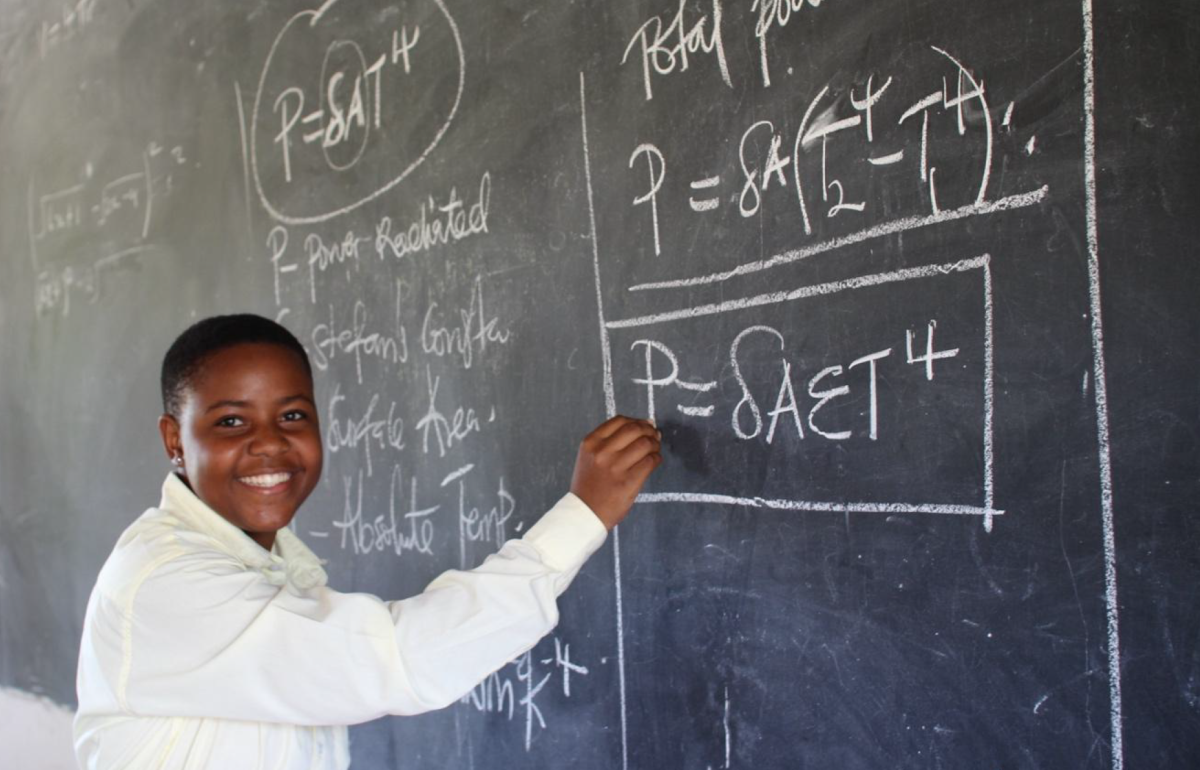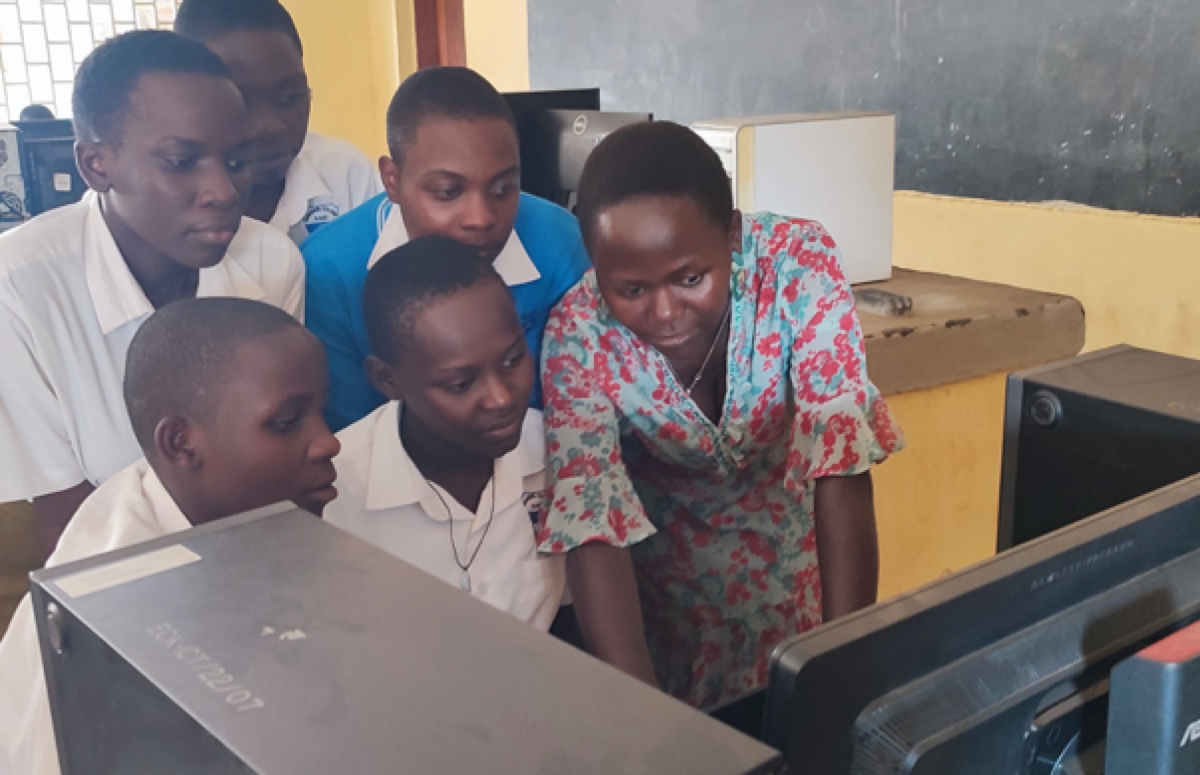“My dream is to become a biomedical researcher and support my community during outbreaks like Ebola, COVID-19 and Mpox. I want to help change the course of development in places like mine, where epidemics hold us back.” Florence, a Senior 6 student in the slums of Kampala, speaks these words while pointing to equations on a blackboard. Her confidence reflects a transformation happening across five secondary schools in Kawempe, where Hazel’s STEM Learning Resource Library now empowers girls to pursue subjects they once thought beyond their reach.
Hazel’s STEM Learning Resource Library is the result of a £6420 grant from Hazel’s Footprints Trust to Awamu, which support girls’ education in Kampala’s slums. We are really humbled that Awamu named the library after Hazel.

Launching Hazel’s STEM Learning Resource Library
Awamu designed this carefully curated collection of STEM learning materials to address a critical gap. Girls in Kampala’s slums, especially child mothers and survivors of violence, often find science subjects intimidating and unreachable. However, the new library changes this narrative by providing up-to-date textbooks, revision guides, and career-focused materials that align with Uganda’s reformed competency-based curriculum.
Since Awamu distributed these resources, 121 girls now actively use them to support their learning. The impact reaches across five secondary schools, where teachers report dramatic shifts in both motivation and mindset.
Dreams Taking Shape
Namaganza, a Senior 5 student studying Mathematics, Economics and Computer Science, exemplifies this transformation: “Thank you for the books – they’re pushing me to study harder and practice daily. My dream is to become a civil engineer. Not many women in my country take this on – it’s very rare – but I’ve always admired the few who do. I want to be the first woman in my community to achieve this and inspire others.”
These aren’t isolated stories. Currently, 9 A-Level students and 71 O-Level candidates use the new STEM resources to prepare for their November 2025 final exams. Teachers and mentors guide them through structured revision techniques while linking classroom content to real-world careers.
Changing How Girls See Themselves
Ms Akinome, a computer science teacher at Emmanuel College Kazo, observes the deeper impact: “For many girls, this is the first time they’ve truly felt like they belong in the classroom – especially in subjects like physics, chemistry and maths, where girls are often underestimated. These resources are not just helping to improve academic performance – they’re helping change how girls see themselves and what they believe they’re capable of.”
Lydia, a Senior 6 student taking Biology, Chemistry and Mathematics, demonstrates this confidence: “We don’t have enough doctors in Uganda – I want to be part of the solution. With these new books and the mentorship I’ve received, I know I can study hard and aim to win a scholarship, and pursue medicine.”

Adapting to Educational Reform
The project faced an unexpected challenge when Uganda implemented major curriculum reforms. Rather than rush purchases that might quickly become outdated, Awamu took time to ensure long-term impact. They collaborated with Mr Lubwama Hamza, a senior science teacher involved in shaping the national reforms, to select the most appropriate and future-proof materials for both O-Level and A-Level learners.
This thoughtful approach means the resources funded by Hazel’s Footprints will serve students effectively for years to come, adapting to the education system’s shift toward competency-based learning with its focus on practical skills.
Building Confidence Through Belonging
The library forms a key part of Awamu’s wider “Creating girl-friendly schools” programme, which ensures girls not only return to school but thrive in subjects where they face traditional underrepresentation. Early feedback from students, mentors and teachers reveals that these materials boost motivation and fundamentally change how girls perceive their academic potential.
For many participants, this represents their first experience of truly belonging in science classrooms. The combination of quality resources and mentoring support creates an environment where girls can explore career paths previously considered impossible.
A Foundation for the Future
As Awamu notes in their report, this support helps girls “move from isolation and exclusion to opportunity and power.” The library doesn’t just provide books and materials – it provides hope and concrete pathways to careers that can transform communities.
These 121 girls now have the tools they need to pursue dreams in biomedical research, civil engineering, medicine, and countless other STEM fields. Their success will inspire the next generation of girls to see science not as an impossible barrier, but as their pathway to changing the world.
Hazel’s Footprints Trust provided a £6,240 grant to Awamu for Hazel’s STEM Learning Resource Library, supporting girls’ education in five secondary schools across Kawempe, Kampala, Uganda.

